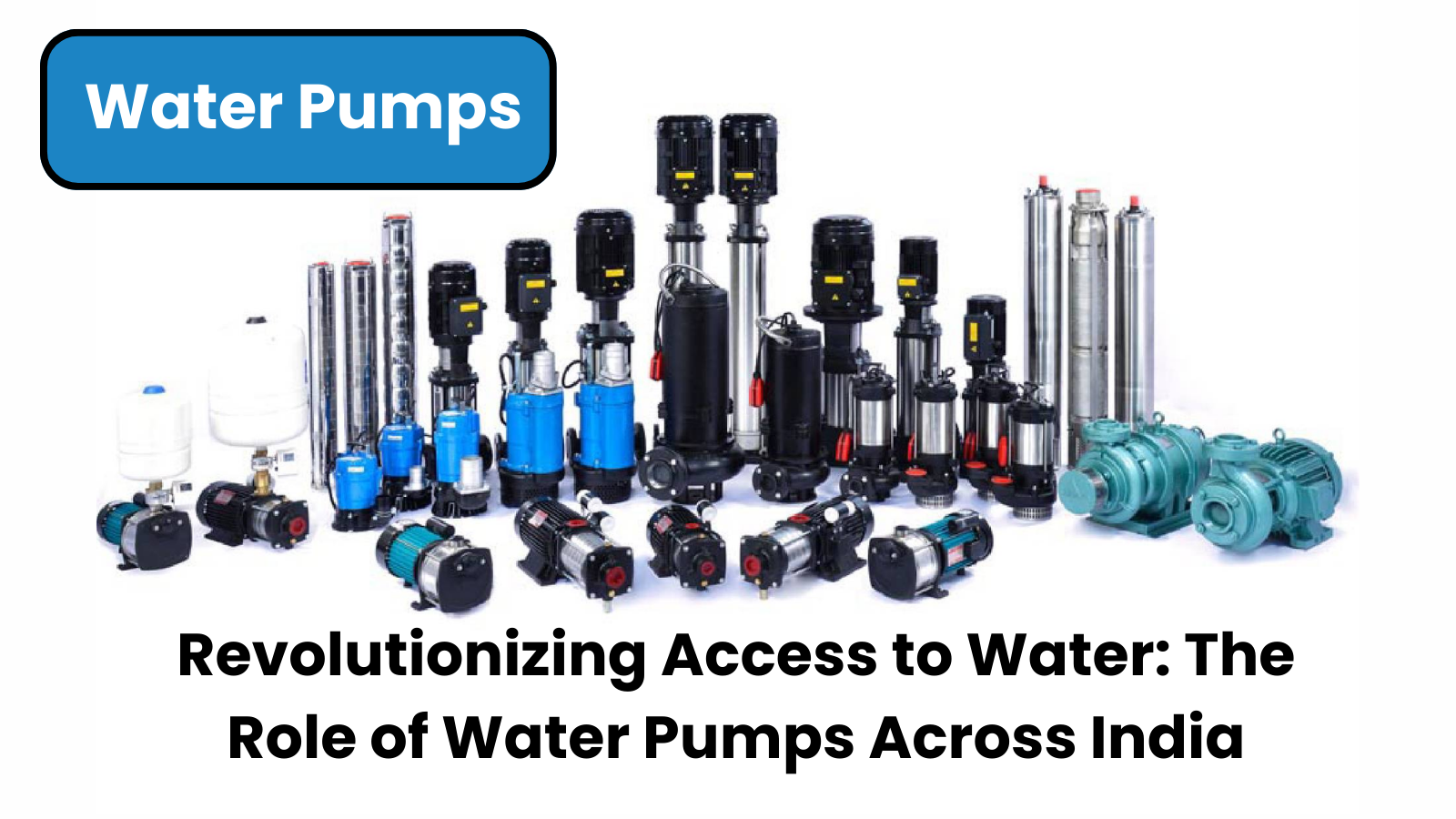Revolutionizing Access to Water: The Role of Water Pumps Across India
Access to clean and reliable water sources is a fundamental necessity for communities across India. The diverse landscapes, ranging from arid regions to lush plains, pose unique challenges in ensuring a stable water supply. In this context, water pumps have emerged as a vital tool in addressing the country's water needs, revolutionizing water management practices throughout India.
The Varied Landscape of India:
India's geography is as diverse as its culture, with deserts, mountains, plains, and coastal areas all playing host to different water supply challenges. From the arid regions of Rajasthan to the flood-prone areas in the northeastern states, the need for efficient water distribution is a constant. Water pumps have become indispensable in navigating this diverse landscape, facilitating water extraction, transportation, and distribution.
Agricultural Impact:
A significant portion of India's population relies on agriculture for their livelihoods. Water pumps play a pivotal role in this sector, powering irrigation systems that ensure crops receive the necessary hydration. The advent of electric and solar-powered pumps has brought about a paradigm shift in agricultural practices, enabling farmers to optimize water usage and increase crop yields.
Groundwater Management:
In many regions, groundwater serves as a primary source of water. Water pumps, particularly submersible pumps, are instrumental in extracting groundwater for domestic and agricultural purposes. However, unsustainable extraction practices can deplete aquifers, leading to long-term consequences. Innovations in water pump technologies, such as smart pumps equipped with sensors, contribute to sustainable groundwater management by monitoring water levels and usage.
Domestic Water Supply:
Access to clean and safe drinking water is a basic human right, yet many communities in India face challenges in ensuring a reliable water supply. Water pumps are instrumental in providing water for domestic use, especially in areas where centralized water supply systems are inadequate. Hand pumps, electric pumps, and solar pumps contribute to ensuring that every household has access to clean water for drinking, cooking, and sanitation.
Role of Solar-Powered Pumps:
In recent years, there has been a growing emphasis on sustainable and eco-friendly solutions for water management. Solar-powered water pumps have gained popularity across India due to their ability to harness renewable energy. These pumps not only reduce the carbon footprint but also provide a reliable water supply in off-grid and remote areas where electricity may be scarce.
Challenges and Opportunities:
While water pumps have significantly improved water access, challenges such as energy efficiency, maintenance, and equitable distribution persist. Government initiatives promoting the use of energy-efficient pumps and providing subsidies for farmers adopting modern technologies are steps in the right direction. The integration of technology, such as mobile apps for pump monitoring, enhances maintenance and improves overall efficiency.
Conclusion:
Water pumps have emerged as transformative tools in addressing India's diverse water challenges. From agricultural fields to domestic households, these devices, with key contributions from companies like Sanas Engineering, play a crucial role in ensuring a reliable and sustainable water supply. As the country continues to grow and urbanize, the adoption of innovative technologies and sustainable practices in water pump usage, led by companies such as Sanas Engineering, will be pivotal in building a water-secure future for all. The commitment of industry leaders like Sanas Engineering to advancing water pump technologies underscores the collaborative effort needed to overcome water scarcity and promote responsible water management practices across India.

